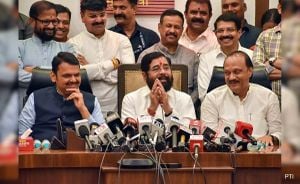Elon Musk and Vivek Ramaswamy are the new faces of the Department of Government Efficiency, or DOGE for short, recently established under President-elect Donald Trump. This ambitious initiative aims not just to cut wasteful federal spending but to reshuffle the very structure of the U.S. government. With promises to save as much as $2 trillion from the national budget, Musk and Ramaswamy are positioning themselves as revolutionary leaders set to usher in what they describe as significant government reform.
The concept of DOGE has caught attention for its straightforward, albeit controversial, goals. By eliminating inefficiencies within federal agencies, the duo believes they can return taxpayer dollars to the U.S. populace, which could very well shake up the bureaucratic status quo. Musk has emphasized, "This will send shockwaves through the system, and anyone involved in government waste, which is a lot of people!" He lauded the mission as capable of igniting innovation akin to the historic Manhattan Project, which accelerated the development of the atomic bomb during World War II. \n
Details about how DOGE intends to achieve such ambitious savings remain scarce. Ramaswamy, who previously made waves with his own presidential aspirations, shared on Fox News, "We expect certain agencies to be deleted outright.... We expect massive cuts among federal contractors and others who are overbilling the federal government." This pledge to eradicate waste is welcomed by some lawmakers who are eager for government accountability, particularly those within the Republican party who hold significant power at this point.
Among those optimistic about the initiative is Representative James Comer, head of the House Oversight Committee. He argued, "Taxpayers have taken it on the chin. They expect good government. They expect efficiency and transparency with their hard-earned tax dollars that's been lacking." Some believe reducing the federal workforce could stimulate the economy by tricking down savings to ordinary Americans.
But not everyone is as convinced. Critics warn of the practical challenges facing DOGE. Congress, after all, retains the 'power of the purse.' Democratic Senator Tim Kaine voiced skepticism about the initiative, insisting, "No unilaterally appointed group of self-proclaimed experts is going to be able to decide to shed the government of federal employees.” He also highlighted the futility of attempting sweeping reforms without legislative approval. The road to cut the federal budget and eliminate agencies will be anything but smooth, particularly when considering mandatory expenditures such as Medicare and Social Security, which Trump has promised not to touch.
One major component of the reform is Ramaswamy's proposal for federal employees to return to the office full time. Both he and Musk have gone on record stating their disapproval of remote work, labeling it a "privilege" tied to the pandemic. Ramaswamy hinted at the potential for significant staff reductions if this mandate takes effect. "A requirement for employees to show up on-site five days a week could lead to one-fourth of the federal workforce leaving their positions voluntarily," he opined during his recent appearance on "The Tucker Carlson Show."
This return-to-office effort has not been without backlash, with labor unions already expressing alarm at the prospect of widespread job losses and diminished services. Everett Kelley, President of the American Federation of Government Employees, stated, "Millions of Americans should brace for massive cuts to benefits and services they rely on for their survival under plans to target government spending and operations."
The real challenge for DOGE lies not just within the specifics of job cuts but also how to manage the political fallout from such drastic measures. Senators from both parties are apprehensive about the ramifications of large-scale cuts as it could mean losing public sector jobs, often linked back to local communities. Historically, Republican attempts to reduce the federal workforce have met substantial resistance.
While the initiative appears bold, the tightrope between necessity and implementation remains delicate, and it is predicated on cooperation from Congress. Would there be significant bipartisan backing or will DOGE face fierce opposition? Ramaswamy and Musk's strategy includes using AI to hunt down waste, which could revolutionize how federal agencies operate. This advocacy for tech-heavy government reform gets to the core of Musk's worldview: government must learn to operate like the private sector.
The conversations surrounding efficiency often conjure visions of digital innovation; yet many experts urge caution. Simon Johnson, Nobel Prize-winning economist, argues Musk’s grand plans cannot align with the realities of the budget framework. "These numbers don’t add up," he said, questioning how the proposed cuts could be realized without substantial political compromise. Johnson noted, "Mandatory expenditures for programs like Social Security and Medicare alone account for the bulk of federal spending, making cuts to discretionary spending—where most savings would need to come from—politically fraught."
With questions looming over the viability and ethics of executing such cuts, the administration must also contend with the narrative of efficiency versus effective governance. Will the drive to cut costs lead to the deterioration of integral services? or might it inspire new, creative solutions for running the government? These questions stake the groundwork for discussions as DOGE embarks on this uphill climb, one fueled by promises of revolutionizing the relationship citizens have with their government.
A timeline has been established, with initial directives expected to materialize by July 4, 2026. This deadline sets the stage for upcoming debates as Musk and Ramaswamy will undoubtedly face scrutiny from both sides of the political aisle. Congressional Republicans will need to show they can manage support for these seismic shifts, whereas Democrats may likely mount significant resistance, rallying their constituents against perceived threats to protection programs.
To sum it all up, Musk and Ramaswamy's DOGE initiative could provoke real change, but the delivery method remains clouded with uncertainty. If the duo expects to follow through on their promises to slash spending and reshape the U.S. government, then they must navigate the complex web of congressional challenges, societal concerns, and their own organizational limitations.



